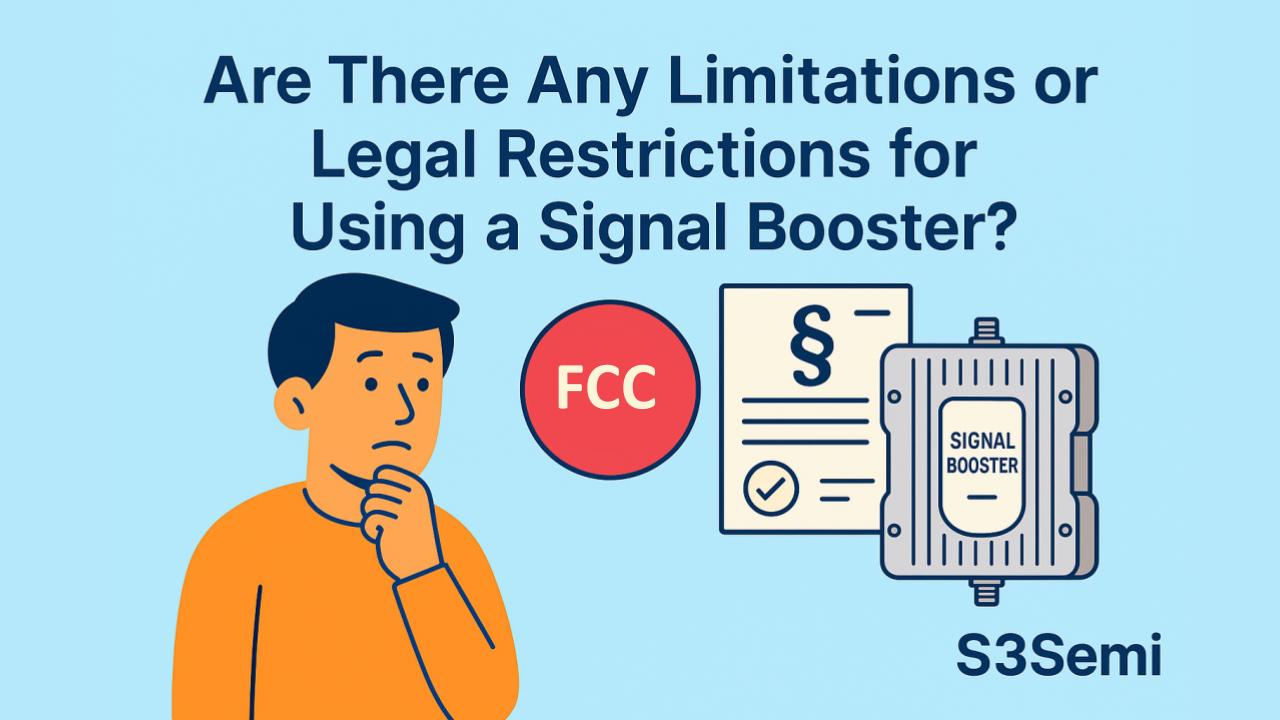📡 Using a cell phone signal booster can drastically improve your mobile reception — but before you install one, it’s crucial to understand the legal and technical limitations. From FCC regulations to carrier-specific rules, here’s what you need to know to stay compliant and connected.
✨ weBoost Cell Phone Signal Booster
🏛️ FCC Regulations: Legal Requirements for Signal Boosters
In the United States, the Federal Communications Commission (FCC) governs the use of signal boosters. Here are the key rules:
- FCC Certification is mandatory: Only boosters that have been certified by the FCC can be legally sold and used.
- Registration is required: Most consumer boosters must be registered with your wireless provider before use.
- Authorization: The FCC requires that boosters not interfere with carrier networks, which means they must meet strict standards for performance and safety.
- Signal gain limits: The FCC places limits on the maximum signal amplification levels to prevent interference with cellular towers.
Using uncertified or unregistered boosters could result in fines or your carrier disabling your service.
✨ Cell Phone Signal Booster Deals on Amazon
📶 Network Restrictions: Carrier-Specific Limitations
Each mobile carrier has its own policies regarding signal boosters. Here’s what to look out for:
- Carrier approval: Even with FCC certification, some carriers have lists of “approved” booster models that work reliably on their network.
- Limited frequency support: Not all boosters work with every carrier’s frequency bands. Make sure the booster supports the bands used by your specific carrier (e.g., Band 12, Band 13, Band 71, etc.).
- Throttling or performance limits: In rare cases, carriers may throttle connections boosted through unauthorized equipment.
Always check with your mobile provider to ensure the booster you choose is compatible with and approved for their network.
🛠️ Installation Restrictions: When Professional Setup is Required
While many consumer signal boosters are designed for DIY installation, there are scenarios where professional help may be necessary — or even required:
- Commercial installations: Boosters used in large buildings, warehouses, or office complexes may require professional design and installation to ensure compliance with FCC rules.
- Shared-use environments: If multiple tenants or carriers are involved, installation must adhere to more stringent standards.
- Interference risk: Improperly installed boosters can interfere with public safety radio systems or other communications, which is why correct setup is critical.
Check local regulations and building codes if you’re planning to install a commercial-grade booster.
✅ Conclusion
Signal boosters are a fantastic tool for improving mobile connectivity — but they must be used responsibly. Ensuring FCC certification, verifying network compatibility, and following proper installation guidelines will keep you within legal bounds and help you get the best possible performance.
Before you buy, always:
- Look for FCC-certified models
- Register your booster with your carrier
- Confirm it works with your carrier’s frequency bands
By following these steps, you’ll enjoy stronger signals without breaking any rules.


